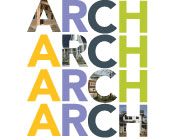Next Steps
Evaluating Needs and Options
If you have completed the value and needs assessments in the previous "What Do I Value" section, you will have a better idea of your needs to evaluate options for aging in place and transitioning from home. You should also have a better understanding of your financial situation and the amount of disposable income available to pay for in-home services or the cost of alternative housing.
In this section, three profiles of seniors faced with the need to make lifestyle changes and their estimated costs involved are shown. Using their scenarios as examples, along with the worksheet that follows the scenarios, you may be able to estimate the costs of staying in your home versus the costs of moving to a different setting.
| Senior Profiles with Lifestyle Cost Estimates - CLICK HERE |
What Are My Personal Options?
You will want to use the worksheet below to compare the costs of staying in your current home with the costs of moving to alternate housing that provide the services you need. To complete this worksheet accurately, you will first need to obtain the actual costs of the service and housing options you are considering. You will want to read about senior housing options before comparing your housing choices. A full discussion of senior housing options are located on pages:
- Aging in Place
- Transitioning from Home
You may not need many of the services listed on the worksheet, and some services may be included in the cost of alternate housing. When this is the case, simply write "N/A" next to these items.
| CLICK HERE to download a copy of the "Evaluating My Personal Options" chart in Microsoft Word format to compare housing options. (Note that this chart is also contained in "What do I value and what are my needs" as a pdf version for your convenience.) |
Who Should I Discuss Assessments and My Personal Options with? Where Can I Find Professionals to Discuss My Assessments?
You do not need to share the results of your assessments and evaluation with anyone. You may want to talk to a family member. If not, you may want to consider working with a financial planner, elder law attorney, and/or a senior care professional to look into the housing and other service choices that will meet your lifestyle requirements.
The East King County Senior Reference Guide 2010-2012 provides a number of resource options. It is noted that this resource guide is periodically updated, but may not be a complete and exhaustive list of all senior services available in East King County. CLICK HERE and refer to the following pages:
| Health Care Information & Referral Services | Page 9 |
| Private Case Management Services | Page 31 |
| Lawyer Referral Services & Legal Assistance | Page 38 |
*With permission, this Senior Housing Decision Making Section and worksheets are almost entirely duplicated from "A Key to Choice for Seniors Open the Door to Services"; a publication created by EastMetro Seniors Agenda for Independent Living (SAIL) and was originally printed with support from the Metropolitan Area Agency on Aging and the Minnesota Board on Aging.




